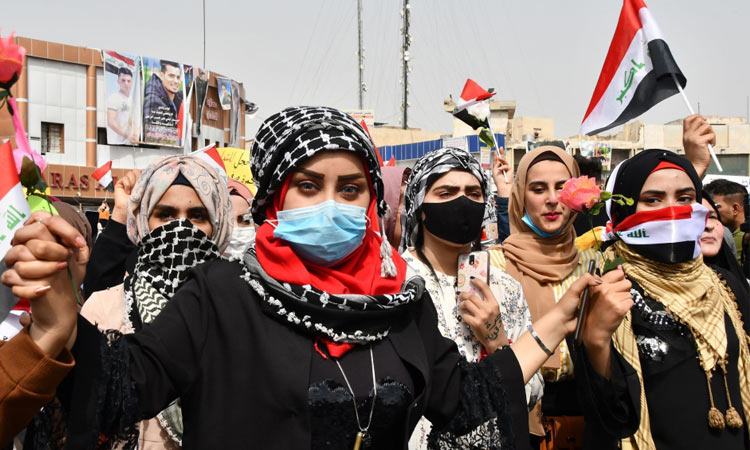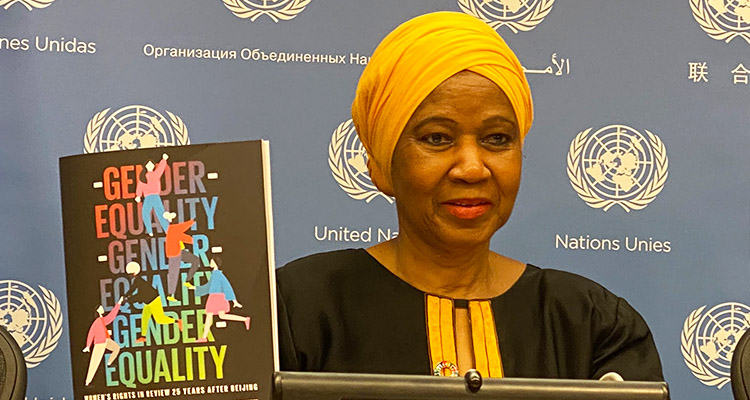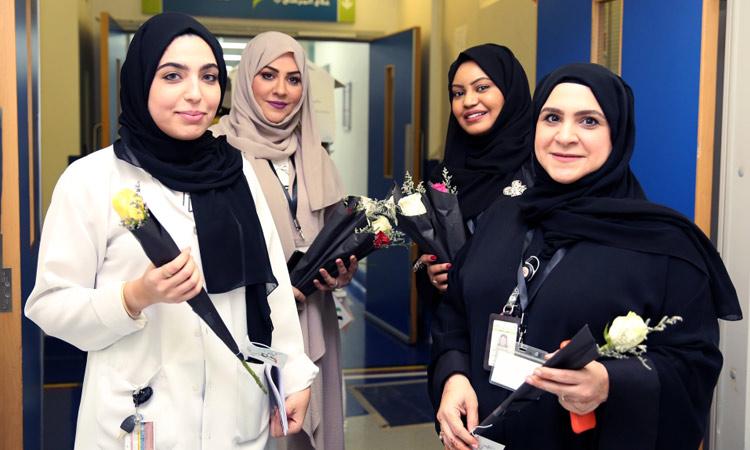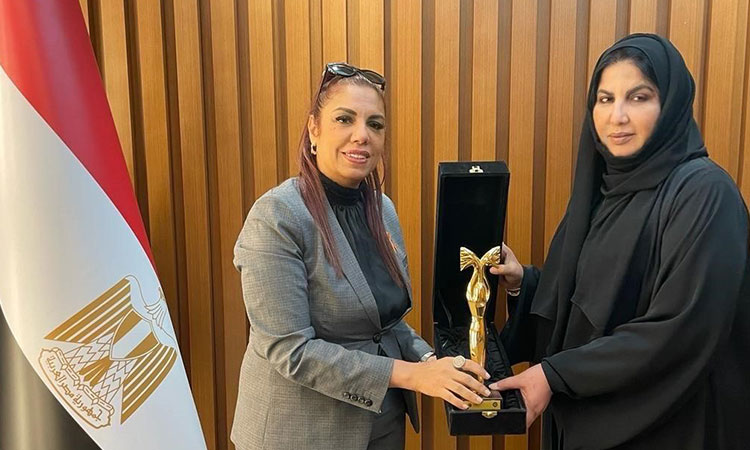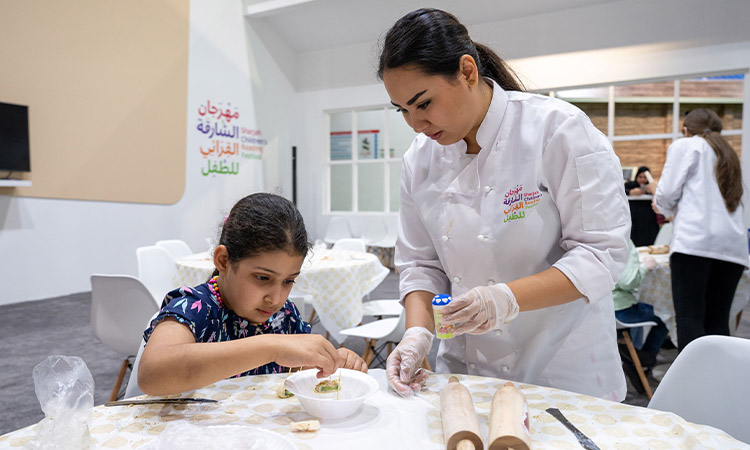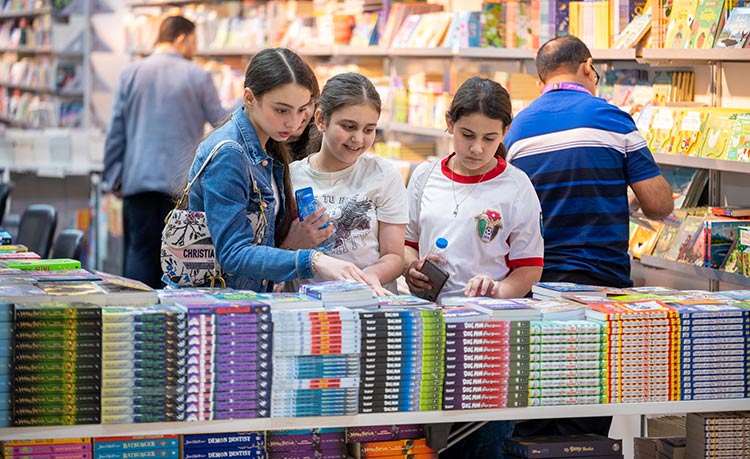Majority of world population hold bias against women, says UN report
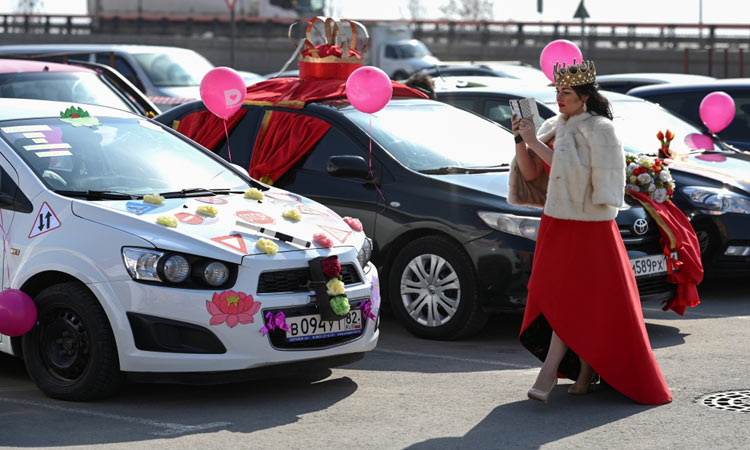
A woman walks past cars decorated for a rally to mark Women's Day in Rostov-on-Don, Russia, on Saturday. Reuters
The United Nations Development Programme studied 75 countries representing 80 per cent of the world’s population and found that nine in 10 people — including women — hold such beliefs.
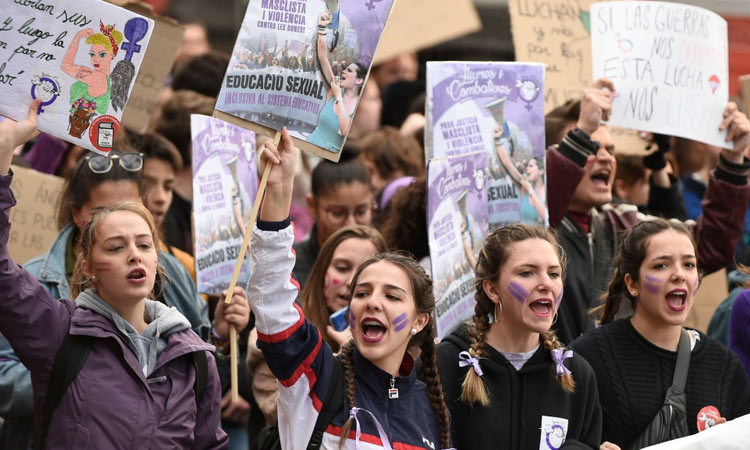
The prejudiced views include: that men are better politicians and business leaders than women; that going to university is more important for men than women; and that men should get preferential treatment in competitive job markets.
Meanwhile, Liberia’s trailblazing former President Ellen Johnson Sirleaf will launch a plan on Sunday to help other African women reach the top in a continent dominated by male heads of state.
The percentage of those holding at least one sexist bias was largest in Pakistan — where 99.81 per cent of people held similar prejudices — followed by Qatar and Nigeria, both at 99.73 per cent.
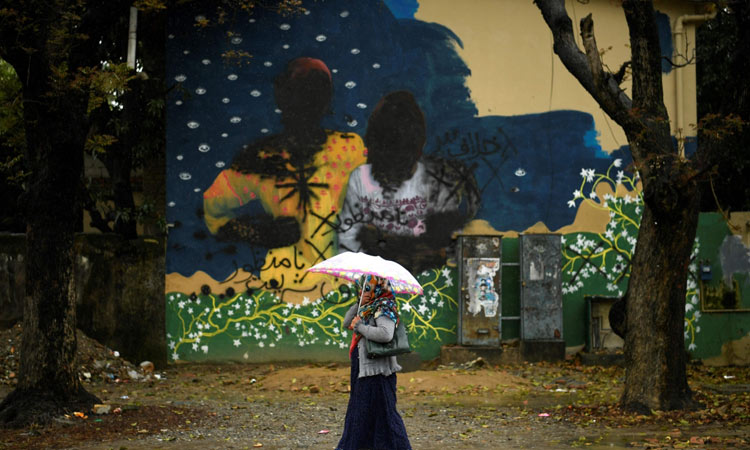
Countries with the lowest population of those with sexist beliefs were Andorra, at 27.01 per cent, Sweden with 30.01 percent and the Netherlands, 39.75 per cent.
France, Britain and the United States each came in with similar scores, 56 per cent, 54.6 per cent and 57.31 per cent of people respectively holding at least one sexist belief.
The numbers show “new clues to the invisible barriers women face in achieving equality” despite “decades of progress,” the UN Development Programme said in a statement accompanying the report.
“The work that has been so effective in ensuring an end to gaps in health or education must now evolve to address something far more challenging: a deeply ingrained bias — among both men and women — against genuine equality,” UNDP Administrator Achim Steiner said.

The agency called on governments and institutions to change discriminatory beliefs and practices through education.
Beyond inequalities in education, health and the economy, the statement also called out one of the report’s most chilling findings: 28 per cent of people believe it is okay for a man to beat his wife.
On the other hand, a quarter of all lawmakers serving in national parliaments worldwide are women, the International Parliamentary Union said Friday, warning though that progress towards gender parity was slowing amid significant “pushback.”
In 2019, women accounted for 24.9 per cent of parliamentarians worldwide, the IPU, which was founded in 1889 and is one of the world’s oldest international organisations, said in a fresh report.
“There has been considerable progress” in recent years, IPU Secretary-General Martin Chungong told reporters in Geneva, pointing out that the percentage back in 1995 stood at just 11.3 per cent.
“There has been a shift in the way people think,” he said, pointing out that a quarter century ago the ambition was to get women to the 30-percent mark, while today “the idea of having 50-50 in parliament is the norm.”
Four countries have reached full gender parity: Rwanda, Cuba, Bolivia and the United Arab Emirates.
Today, the Americas has the best gender balance in parliament, counting 31.3 per cent women MPs across the region, ahead of Europe which counts just under 30 per cent.
The Pacific has the worst record on female representation in parliament, with only 19.4 percent, and three countries in this region -- Micronesia, Papua New Guinea and Vanuatu -- have no women members of parliament at all.
Chungong warned that worldwide there was now clearly “a slowdown in the growth of women’s parliamentary participation.”
Last year, women’s global representation in parliament grew by only 0.6 per cent, after an already modest increase of 0.9 per cent a year earlier.
“There seems to be pushback when it comes to women’s political participation, and it is important that we push back against pushback,” he said.
The IPU, a grouping of 178 legislative chambers that seeks to improve representative democracy worldwide, urged nations to redouble efforts towards gender parity by using tactics including carefully designed quotas.
Chungong said there were several trends that gave rise to optimism, including the #MeToo movement against sexual misconduct.
That movement, he said, “has the potential to help boost women’s political representation, given the fact that one of the inhibiting factors for women political participation is sexism, sexual harassment, gender-based violence.”
“The #Metoo movement has brought these issues to the fore.”
“It is important then that we seize this potential, this momentum to continue to work ... to increase the base of women’s political representation,” he said.
“Otherwise it will take more than a century ... to achieve gender equality.”
Agencies
